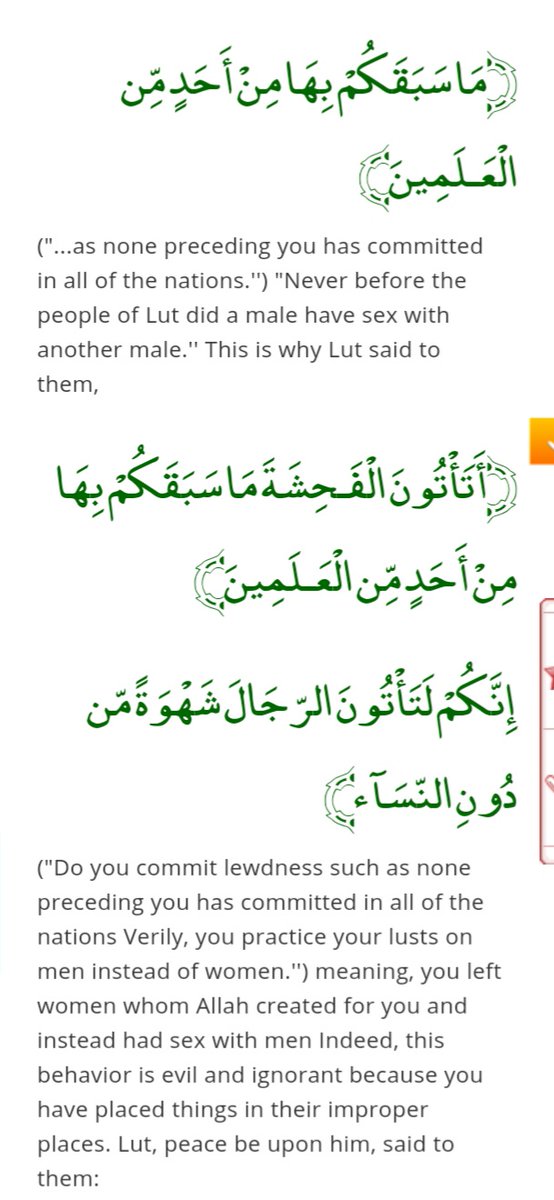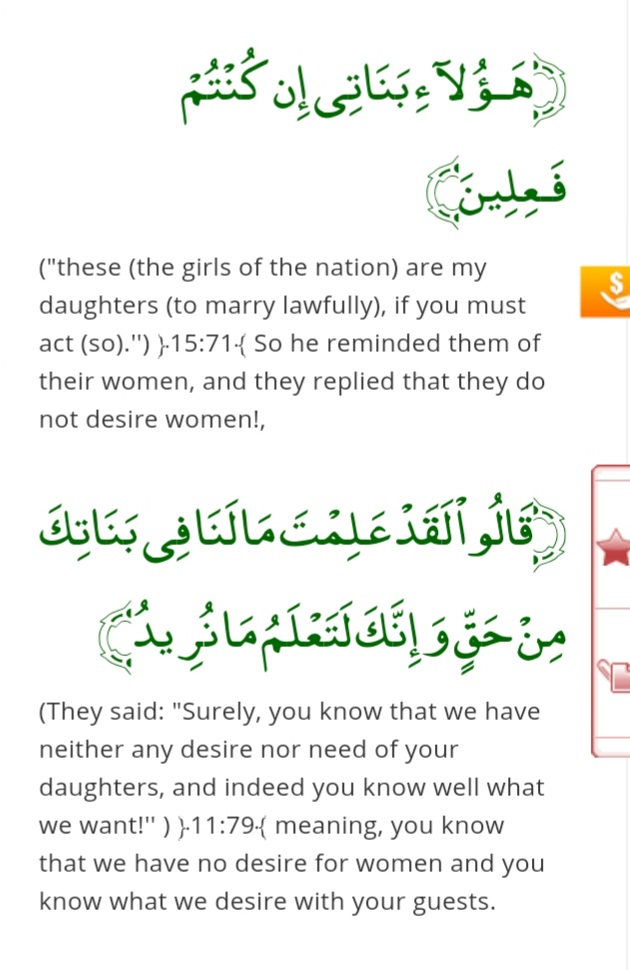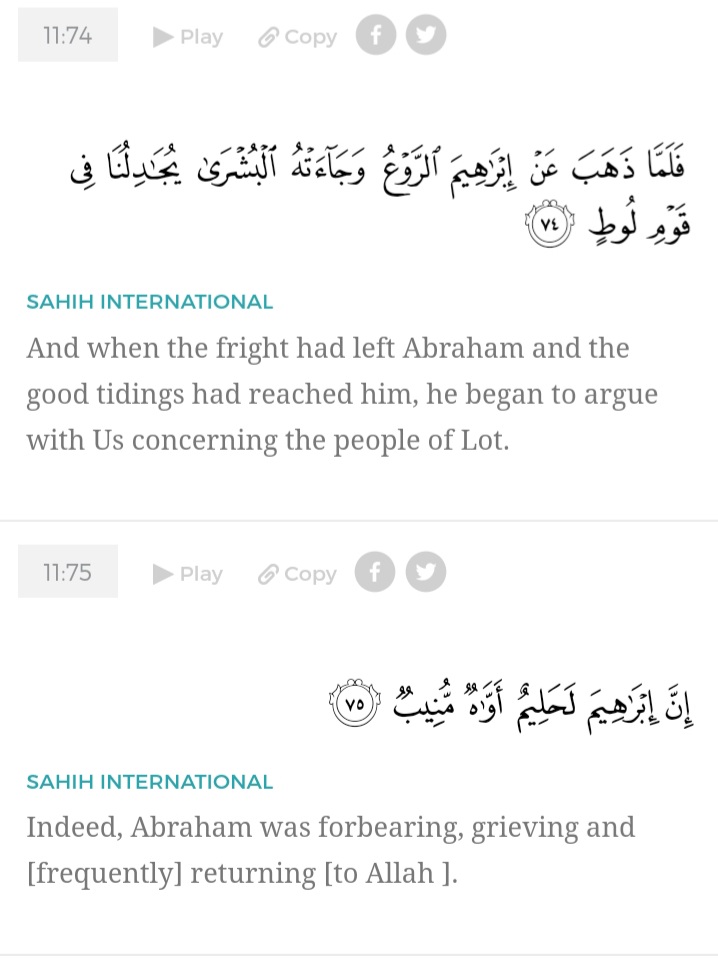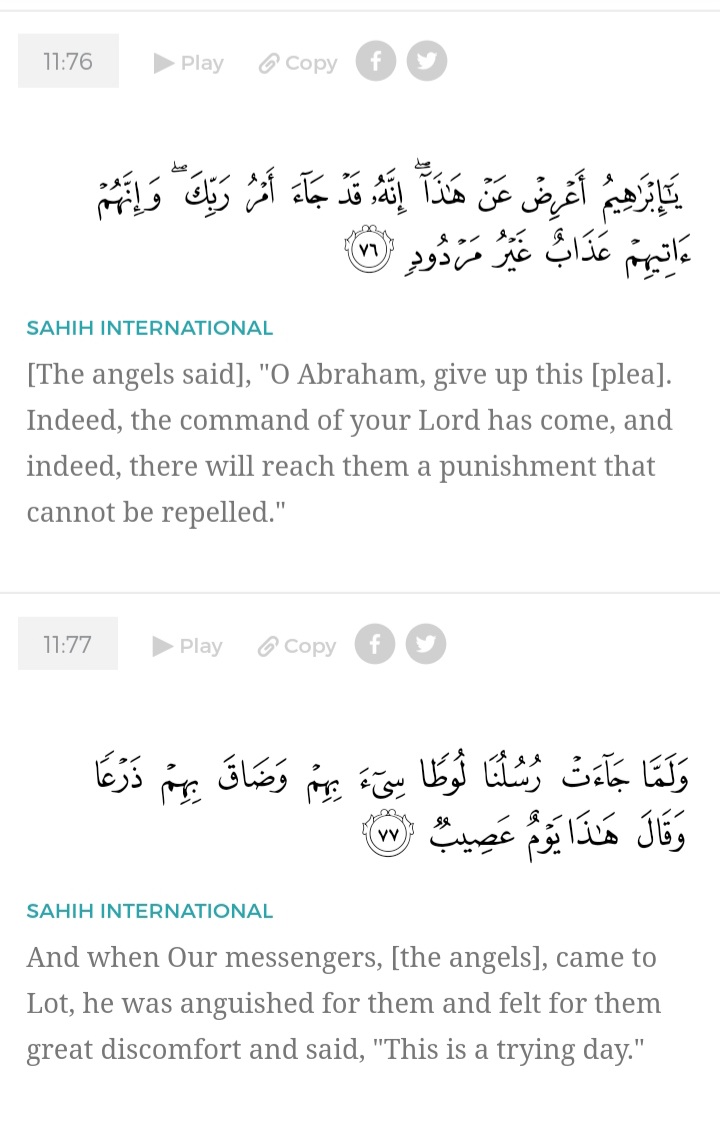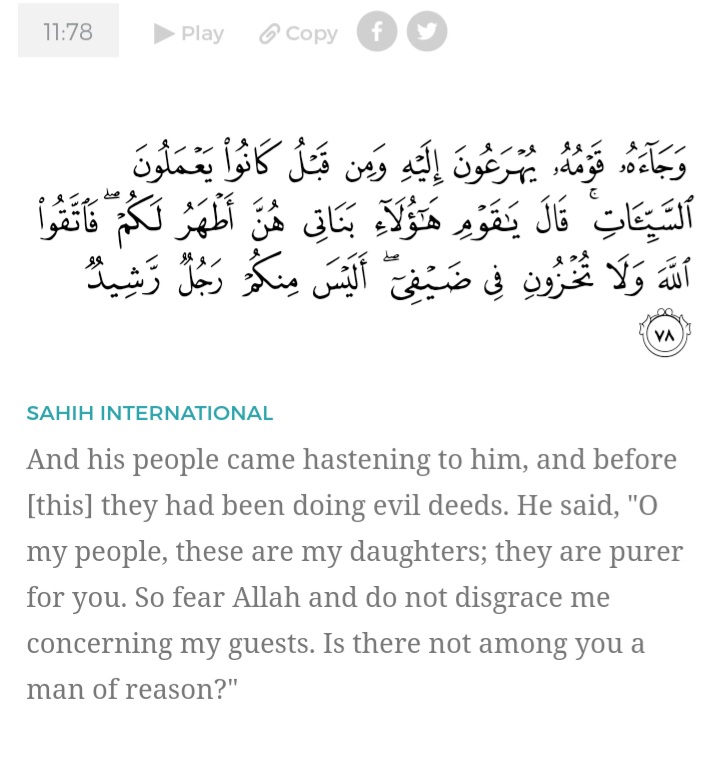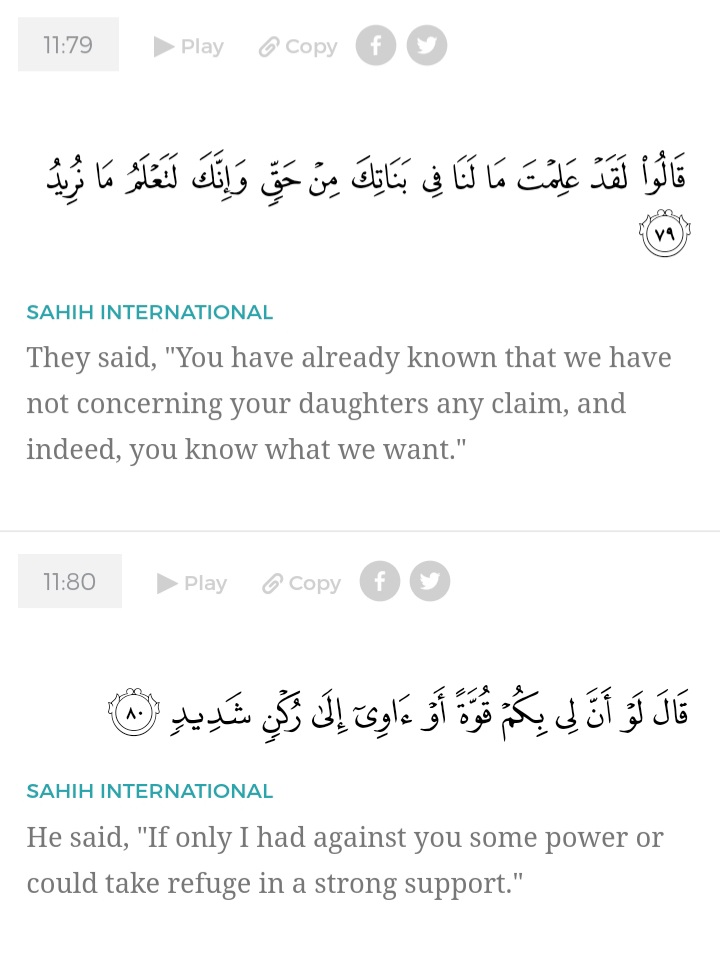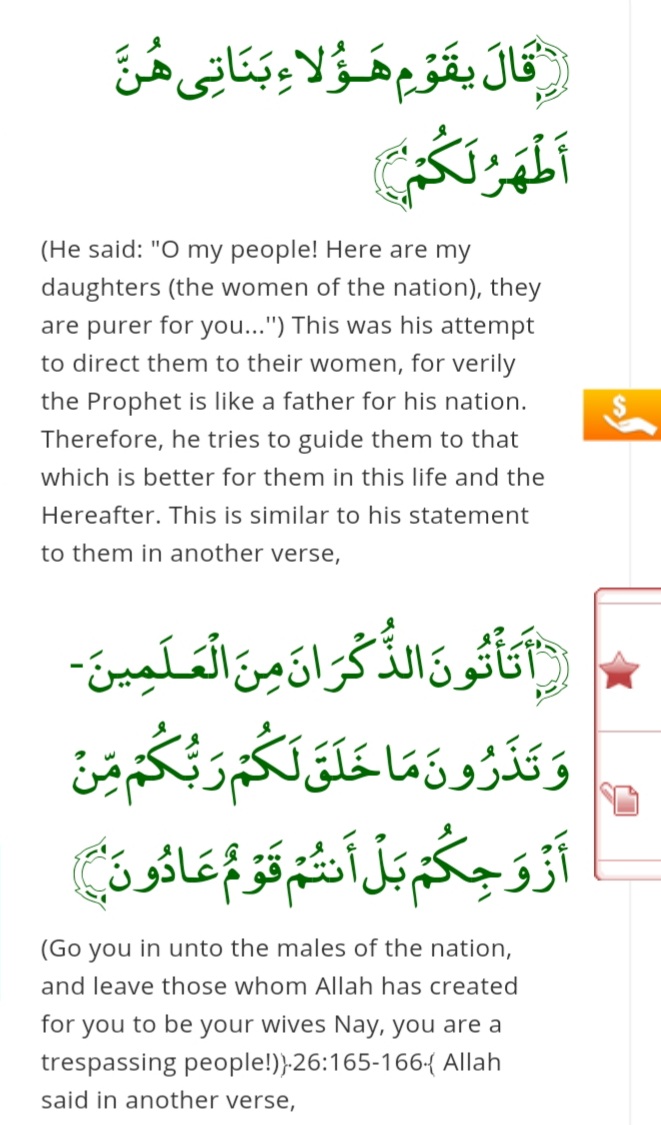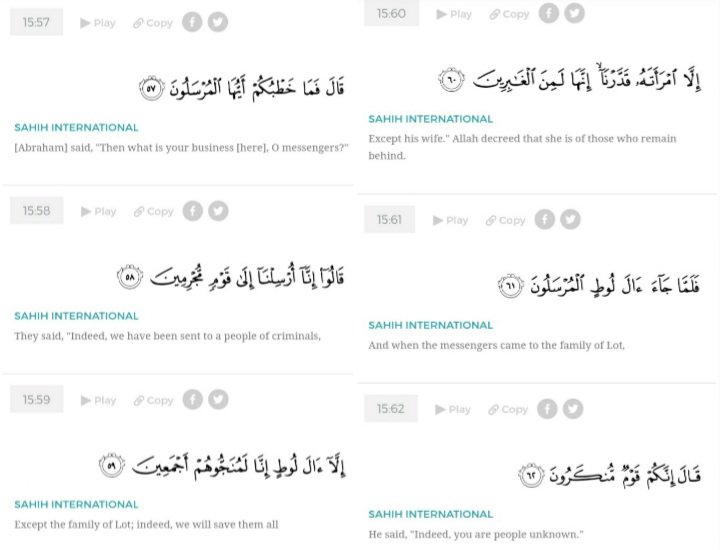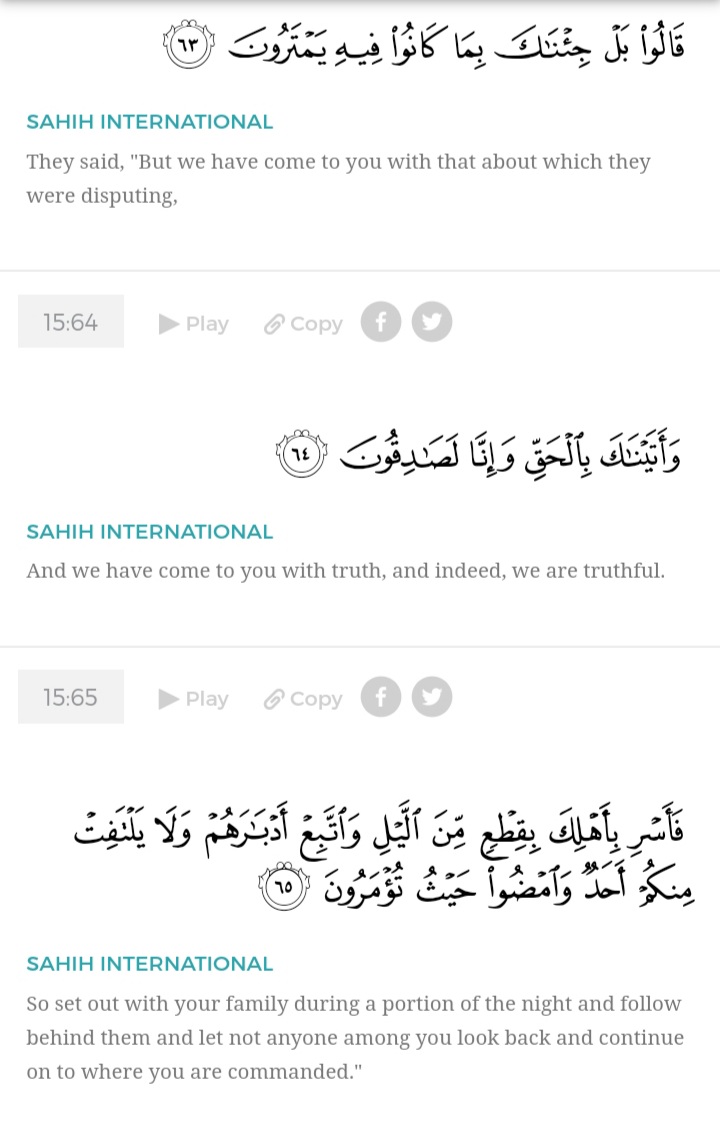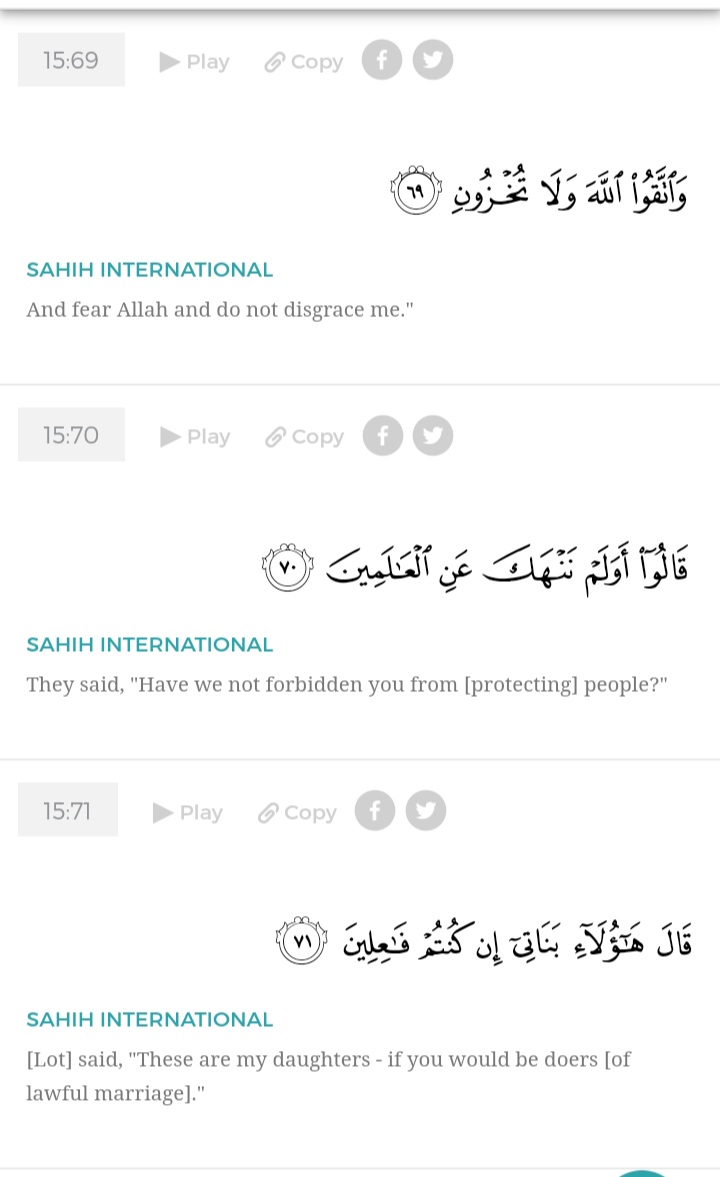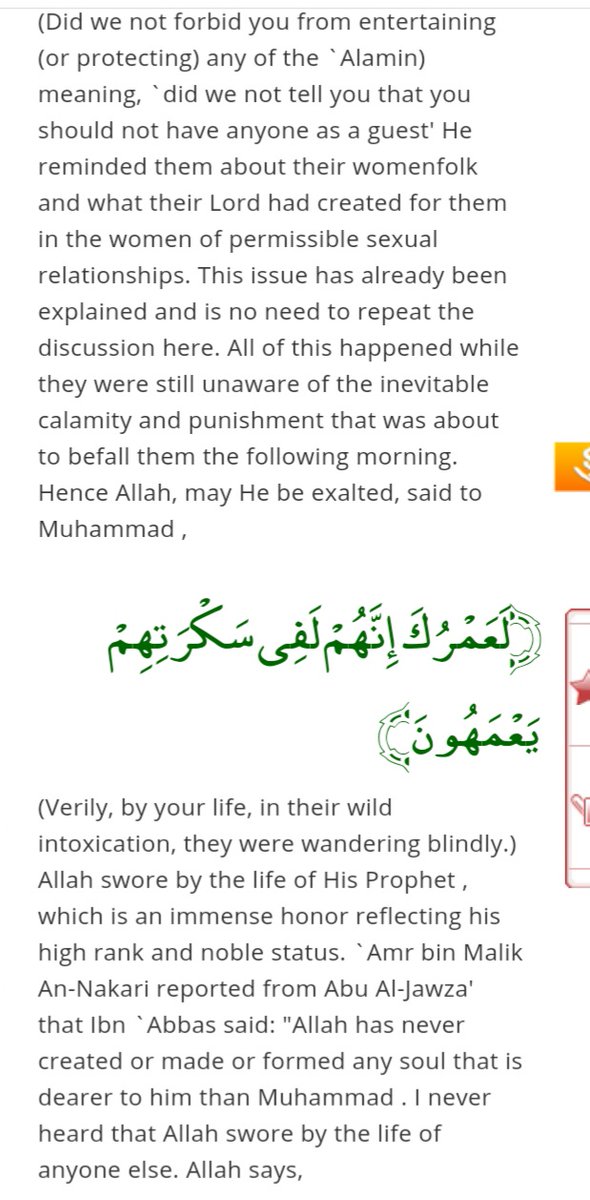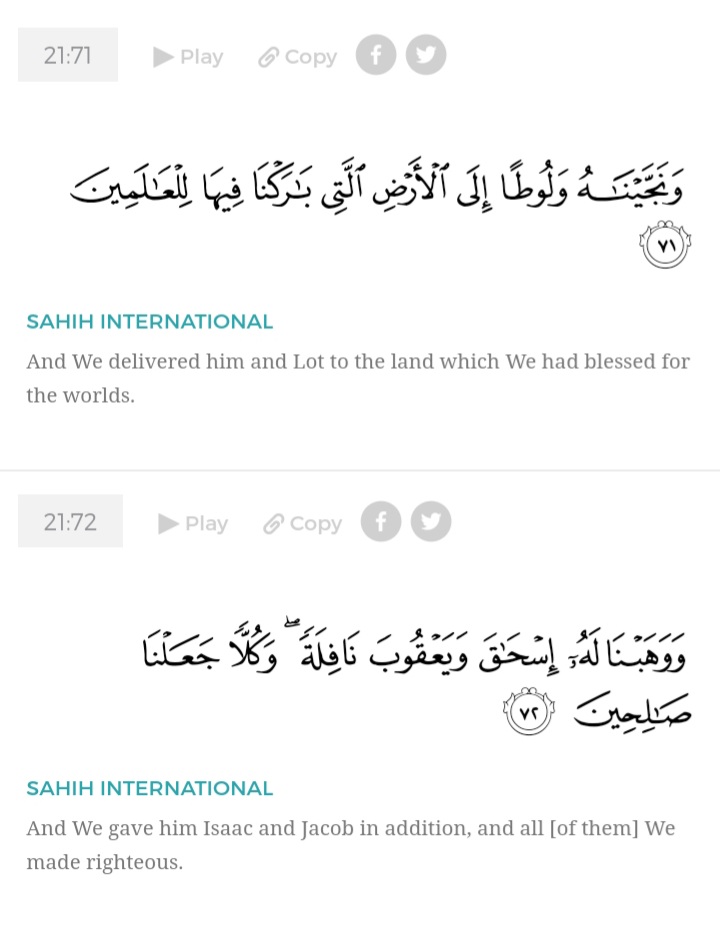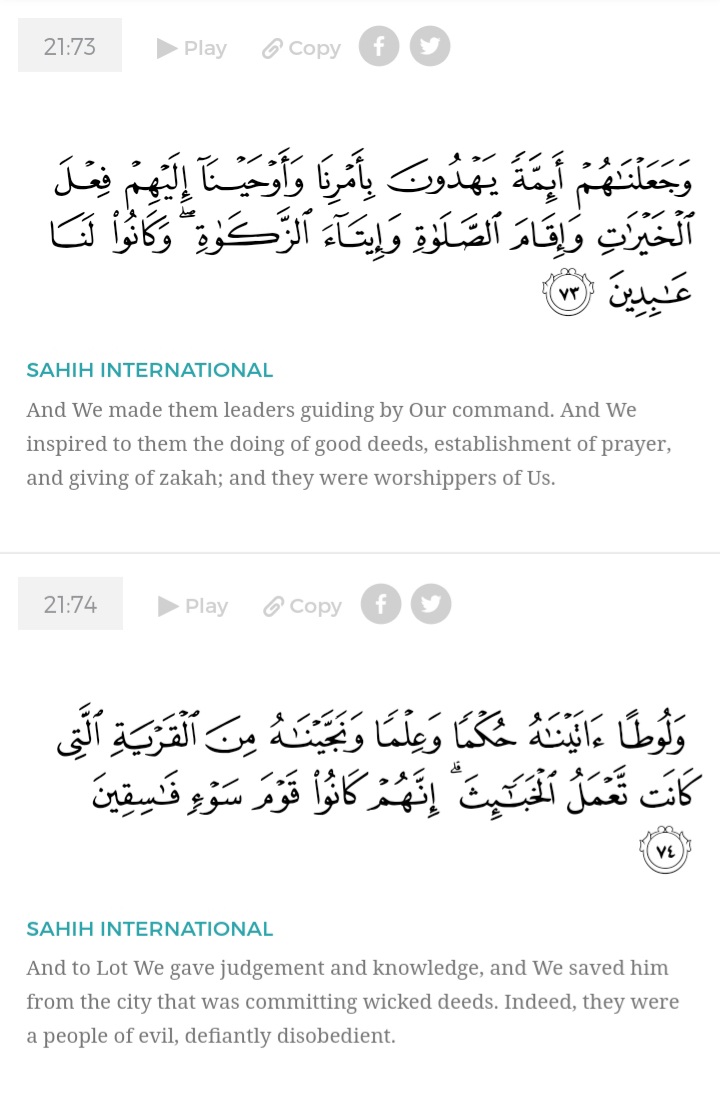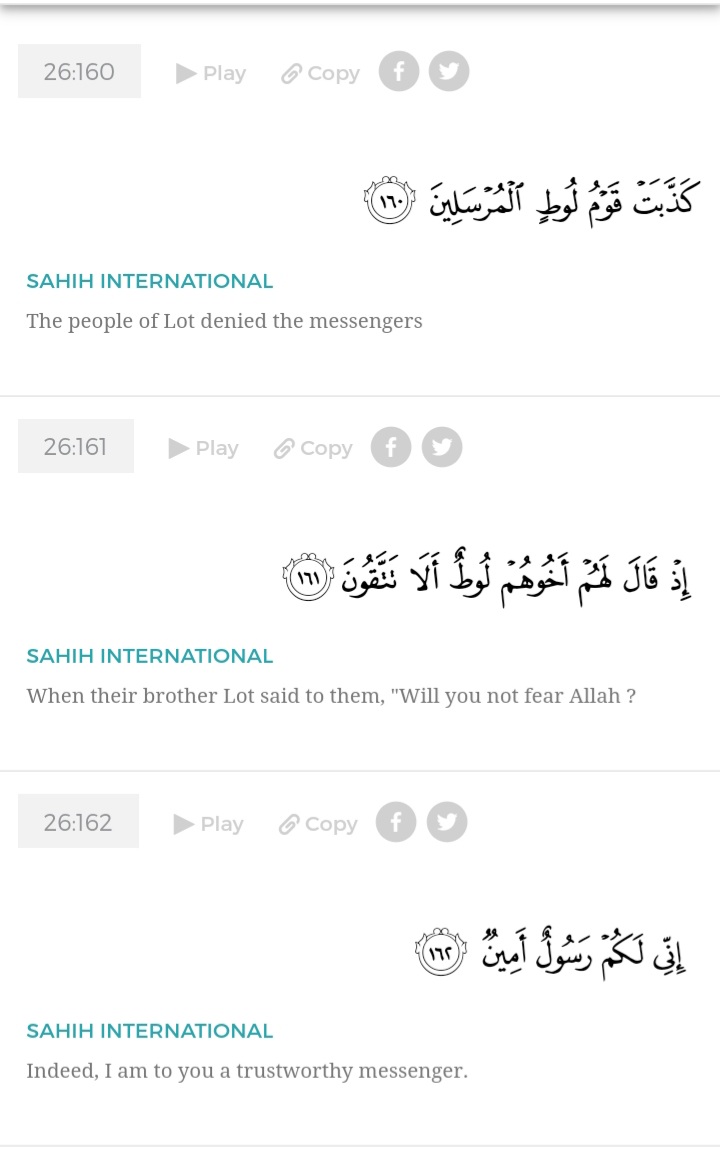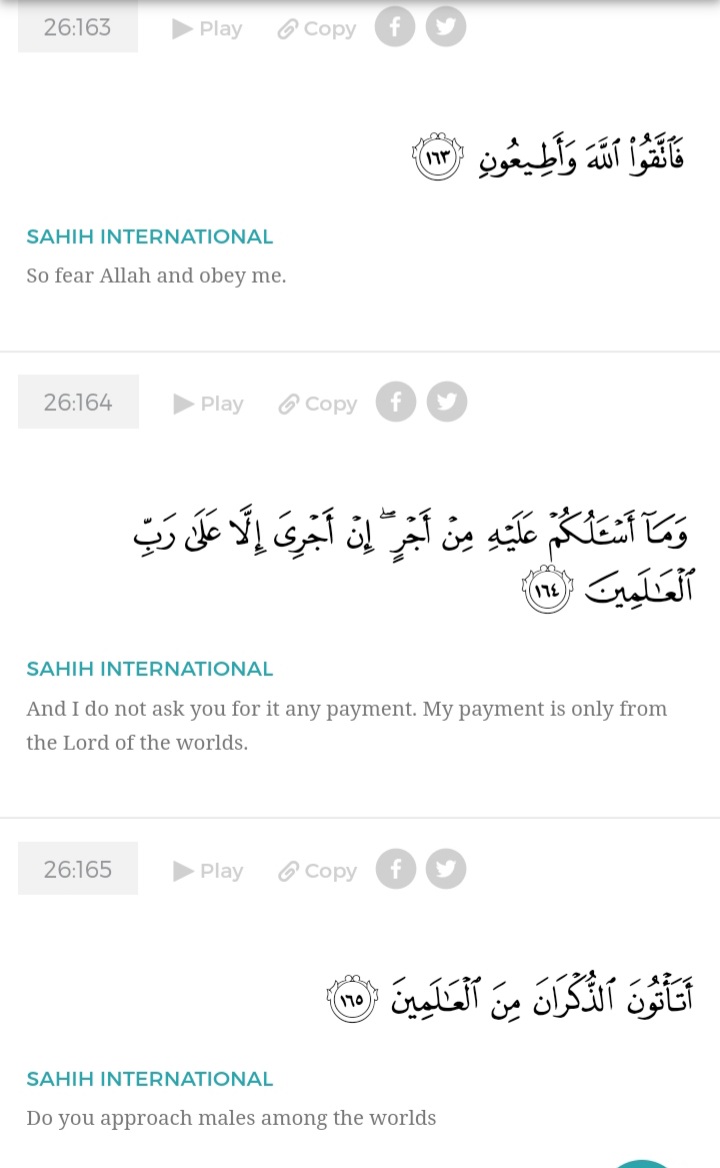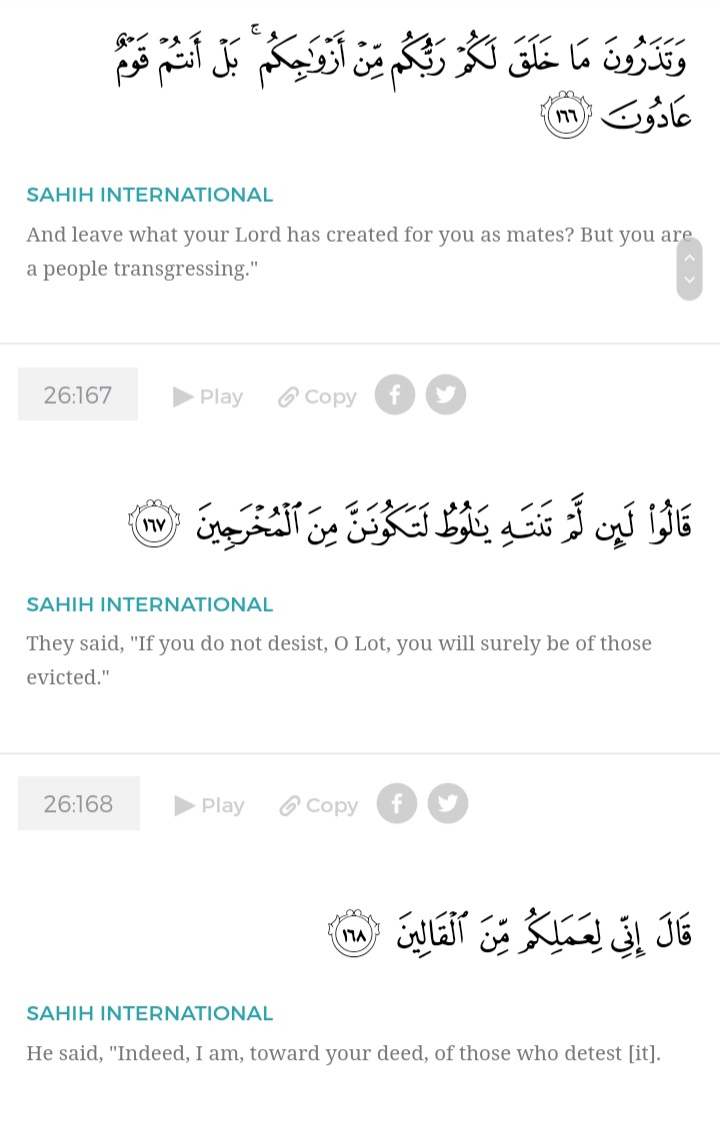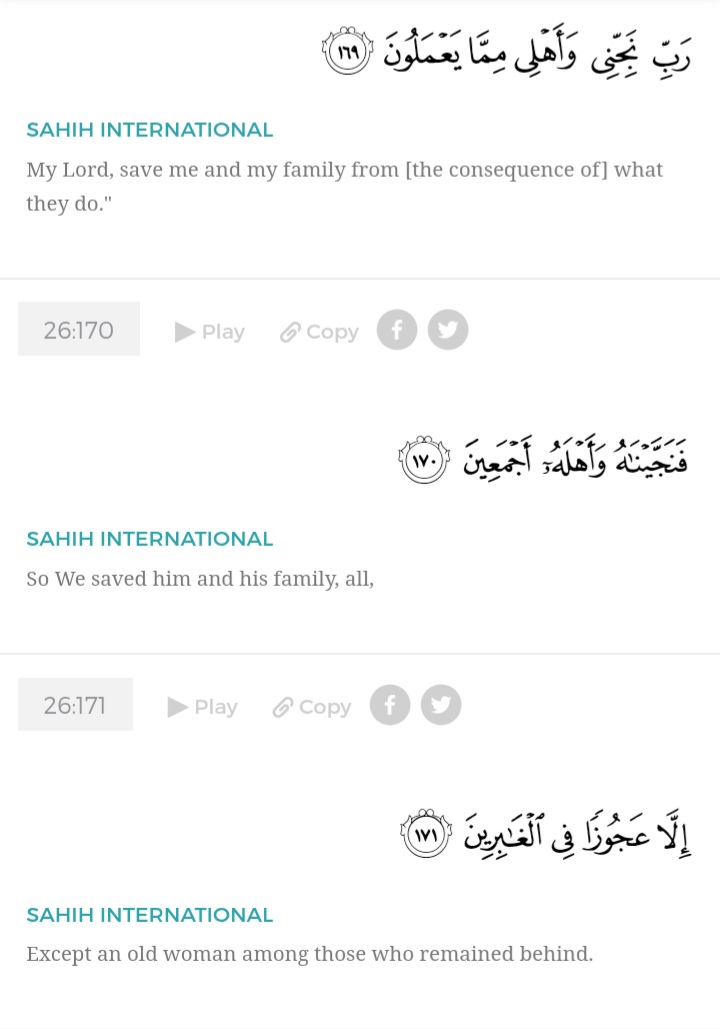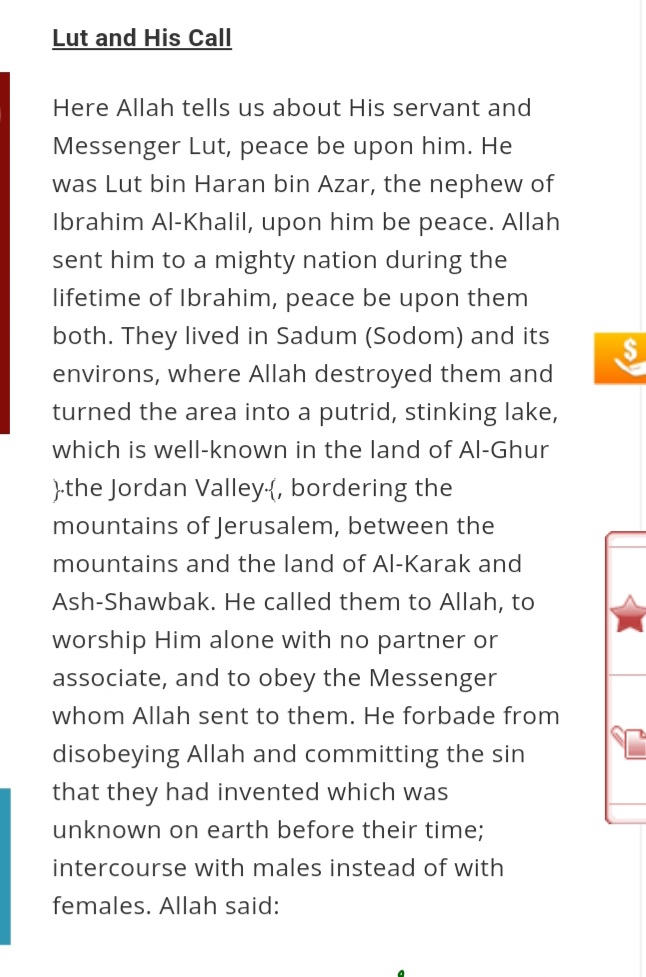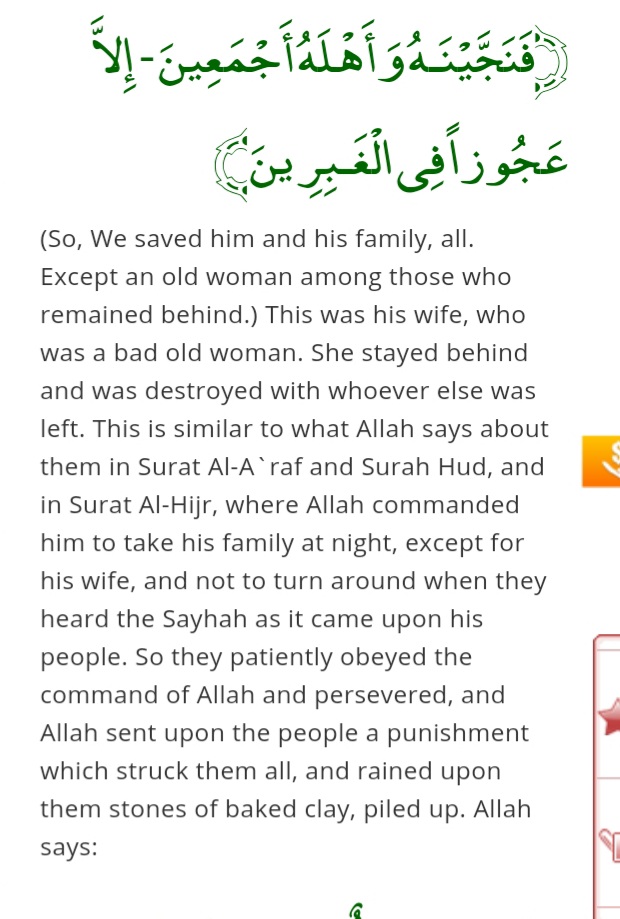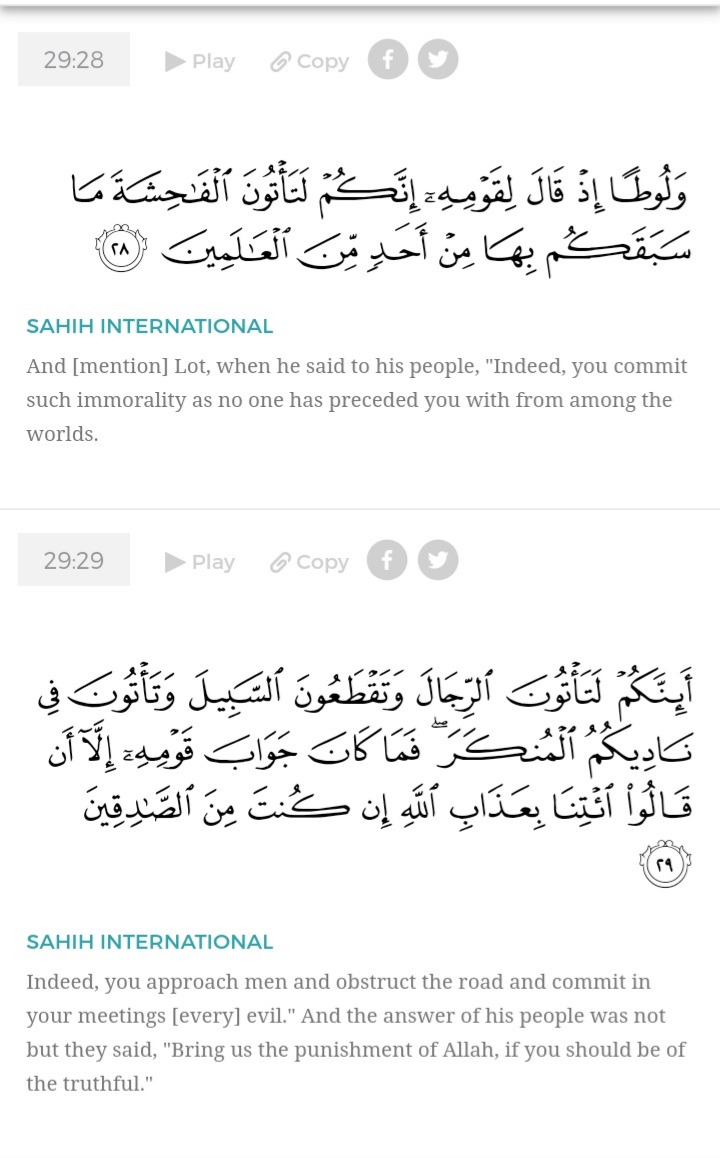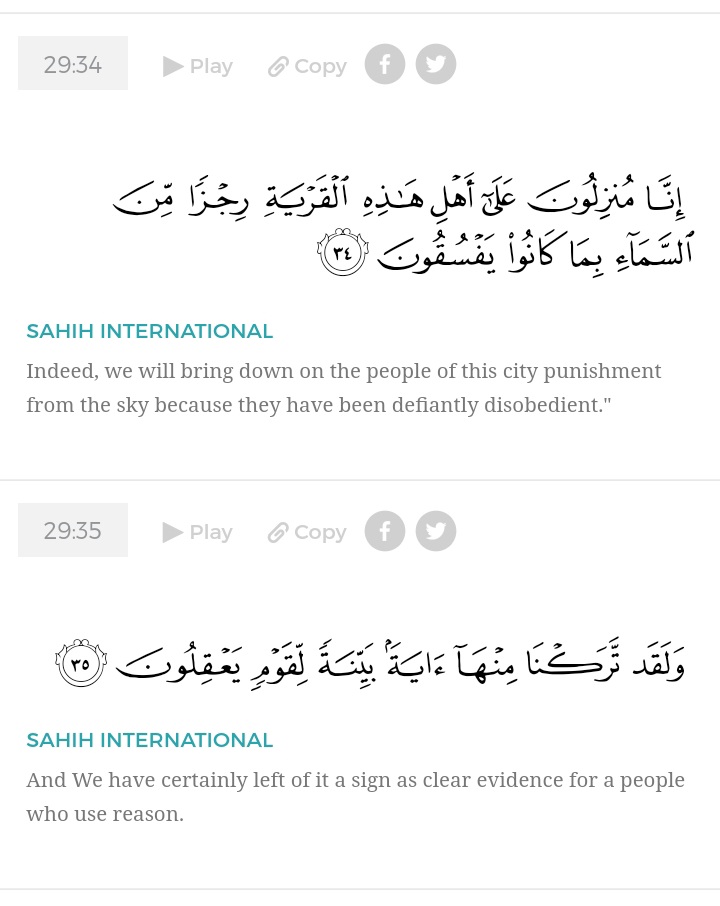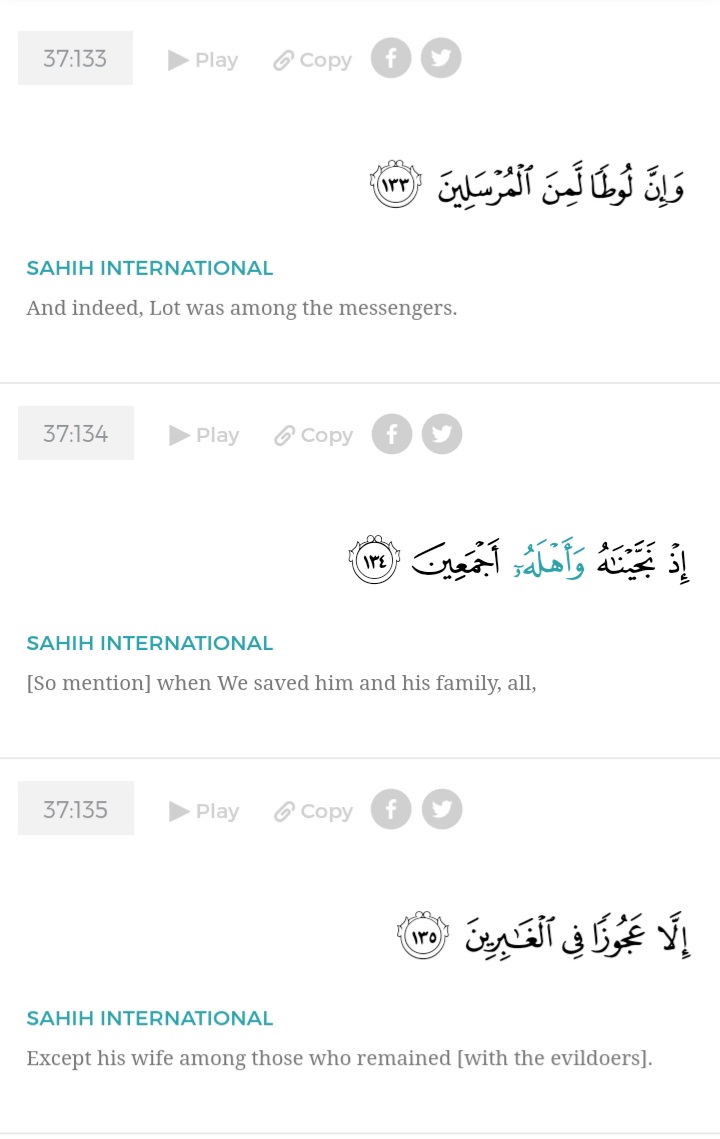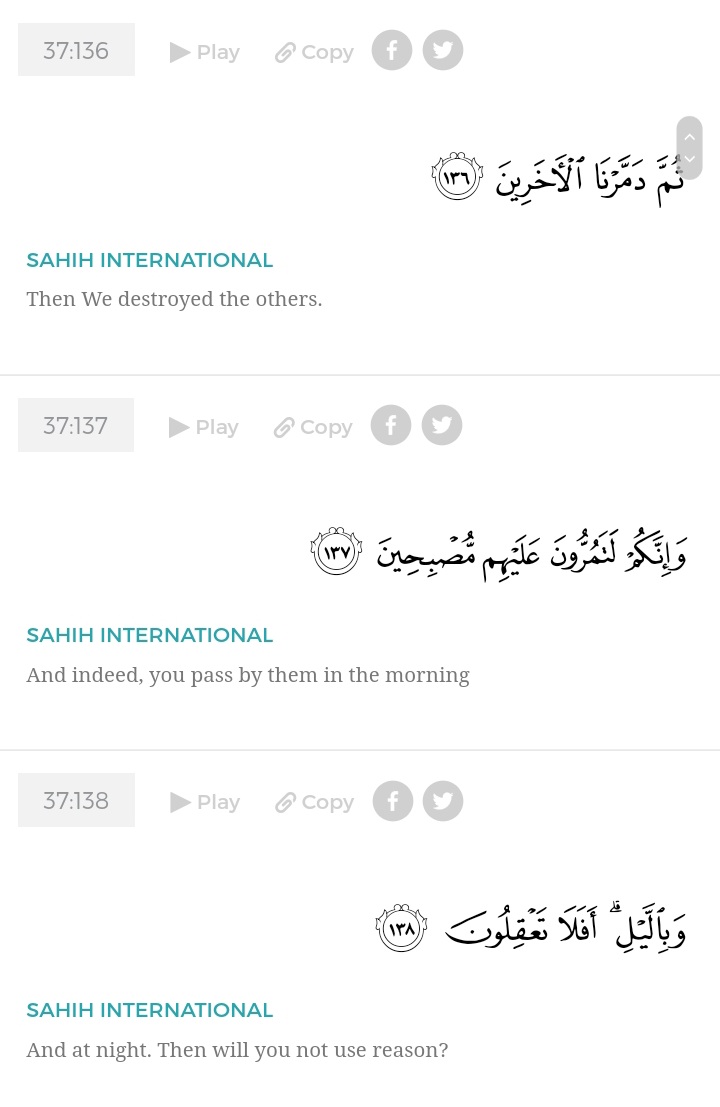Thread - Quran about homosexuality
First, we must understand that there are two kinds of laws, divine law (made by Allah) and man-made law. Muslims believe in divine law and try to ensure that their man-made law replicates it. So instead of being apologetic about it to 1/n
First, we must understand that there are two kinds of laws, divine law (made by Allah) and man-made law. Muslims believe in divine law and try to ensure that their man-made law replicates it. So instead of being apologetic about it to 1/n
avoid the labels such as “homophobes,” we should study what Islam says, and here I will present some of it. Another fact that matters is whether a previous Muslim ruler or nation accepted homosexuality doesn’t change its position from an Islamic point of view. Muslims are 2/n
not necessarily perfect and can err in their behavior, but Islam remains perfect without a doubt. Many people claim that the nation of Lot was mainly punished for “rape” instead of “homosexuality”, so that will be addressed too. 3/n
Al A’raf (7:80-81)
No one had ever committed this sin before. It was a new ‘abomination’. The language, the tone doesn’t suggest rape. All the translations use mild terms such as ‘approach’ ‘come’ ‘practise’- there is no hint of violence or rape, only homosexuality. 4/n
No one had ever committed this sin before. It was a new ‘abomination’. The language, the tone doesn’t suggest rape. All the translations use mild terms such as ‘approach’ ‘come’ ‘practise’- there is no hint of violence or rape, only homosexuality. 4/n
Tafsir Ibn Kathir says that this was about homosexuality or male sodomy as something never done before by the Children of Adam. 5/n
Hud (11:74-80)
The tribe was out of control with their ‘perverse desires’. we can see the capacity for violence; Lot was scared that his guests would be sexually assaulted. These ayahs point out both homosexuality & the potential for rape. 6/n
The tribe was out of control with their ‘perverse desires’. we can see the capacity for violence; Lot was scared that his guests would be sexually assaulted. These ayahs point out both homosexuality & the potential for rape. 6/n
Tafsir Ibn Kathir says that Lut (AS) didn’t present his real daughters, instead, as the prophet is the father of the nation, he was asking the men to turn to their own women, who were like his daughters. 7/n
Al Hijr (15:57-72)
Again, Lot is afraid for his guests; he tries to reason with the people and asks them to go to the women instead. God had sent angels telling him to leave with his family, except his wife, who was among those destroyed. 8/n
Again, Lot is afraid for his guests; he tries to reason with the people and asks them to go to the women instead. God had sent angels telling him to leave with his family, except his wife, who was among those destroyed. 8/n
Tafsir: Lot reminded them that their women are the only ones permissible for their desires and should turn to them instead of men. It is clear that homosexuality was the major issue with the people of Lot; the possibility of rape came later at the peak of their depravity. 9/n
Al Anbiya (21:71-75)
Lot was saved from the tribe and their deeds of ‘abomination’ – it is said that they were evil and depraved. There is no mention of the types of acts, but from earlier allusions, that can easily be deduced that it was about sodomy and homosexuality. 10/n
Lot was saved from the tribe and their deeds of ‘abomination’ – it is said that they were evil and depraved. There is no mention of the types of acts, but from earlier allusions, that can easily be deduced that it was about sodomy and homosexuality. 10/n
Ash Shu’ara (26:160-172)
clearly mention of men ‘lustfully’ approaching men while they stay away from their ‘(lawful) spouses.’ The fact that spouses are mentioned means that the Quran is talking about the relationships these men had with one another- 11/n
clearly mention of men ‘lustfully’ approaching men while they stay away from their ‘(lawful) spouses.’ The fact that spouses are mentioned means that the Quran is talking about the relationships these men had with one another- 11/n
Tafseer also mentions that Lot forbade them male-male intercourse, or sodomy, or only homosexuality. It also clears that the old woman Quran talks about was Prophet Lot’s wife, who didn’t listen to him. 13/n
Al Ankabut (29:28-35)
Most translations break down their sins in 3 different categories- they practice sodomy, assault/rape, and rob the wayfarer and have public orgies. All sins are mentioned separately, which means that consensual homosexuality is discussed 14/n
Most translations break down their sins in 3 different categories- they practice sodomy, assault/rape, and rob the wayfarer and have public orgies. All sins are mentioned separately, which means that consensual homosexuality is discussed 14/n
independently from rape. Muhammad Asad translates the third sin metaphorically as “cut across the way (of nature)”, so according to him this third sin was also homosexuality, not robbing wayfarers as the idea of road can be taken metaphorically. 15/n
As Saffat (37:133-138)
These ayahs are just a reminder about how the whole town was annihilated- Allah wants us to learn from these signs. And the Quran asks us to use our ‘reason’ and understand why Allah’s wrath was sent to these sinners. 16/n
These ayahs are just a reminder about how the whole town was annihilated- Allah wants us to learn from these signs. And the Quran asks us to use our ‘reason’ and understand why Allah’s wrath was sent to these sinners. 16/n
To summarise, the Quran mentions the story of Lot a total of 7 times. Though we can say that they committed other sins, which have been mentioned once or twice, the main sin was consensual homosexuality. It can be deduced from multiple mentions of homosexuality, 17/n
that they were predominantly punished for this sin.
This thread has been after referring to 9 different translations of the Quran, which are:
Muhammed Asad. Pickthall, Yusuf Ali, Helloquran dot com, Quran dot com, Corequran dot com, N.J Dawood, 18/n
This thread has been after referring to 9 different translations of the Quran, which are:
Muhammed Asad. Pickthall, Yusuf Ali, Helloquran dot com, Quran dot com, Corequran dot com, N.J Dawood, 18/n
Dr. Muhammad Taqi-ud-Din Al-Hilali & Dr. Muhammed Muhsin Khan, Maulana Wahiduddin Khan. Apart from this, Tafsir Ibn Kathir has been consulted. 19/n
@threadreaderapp unroll

 Read on Twitter
Read on Twitter

